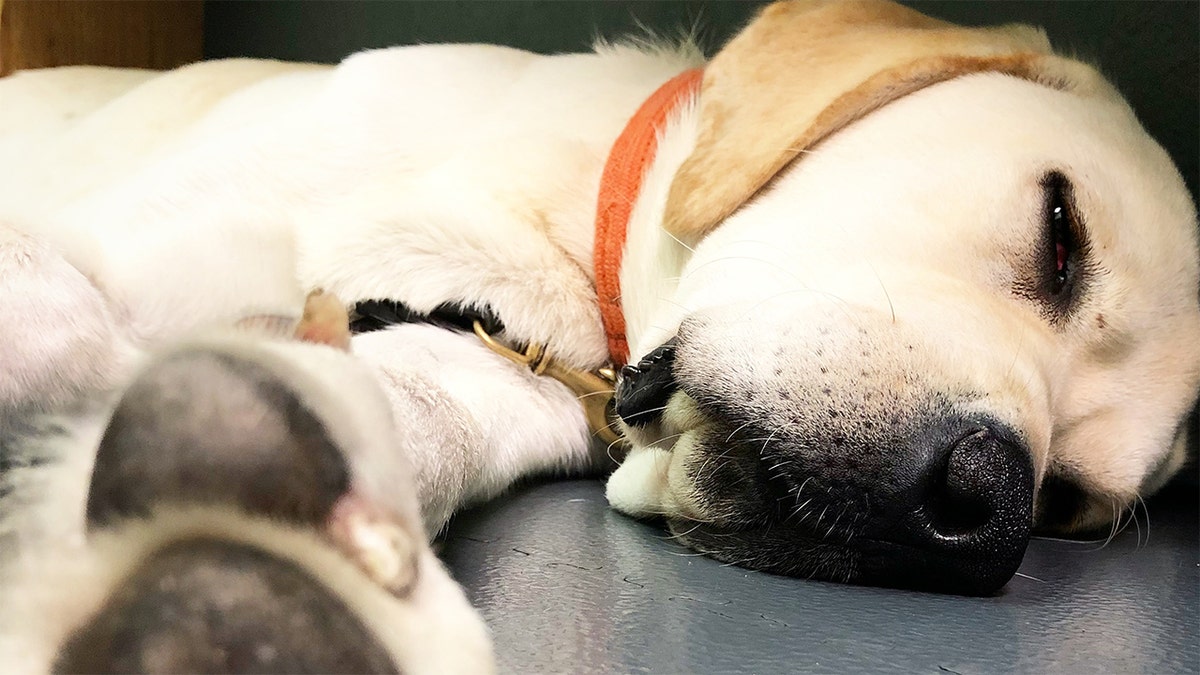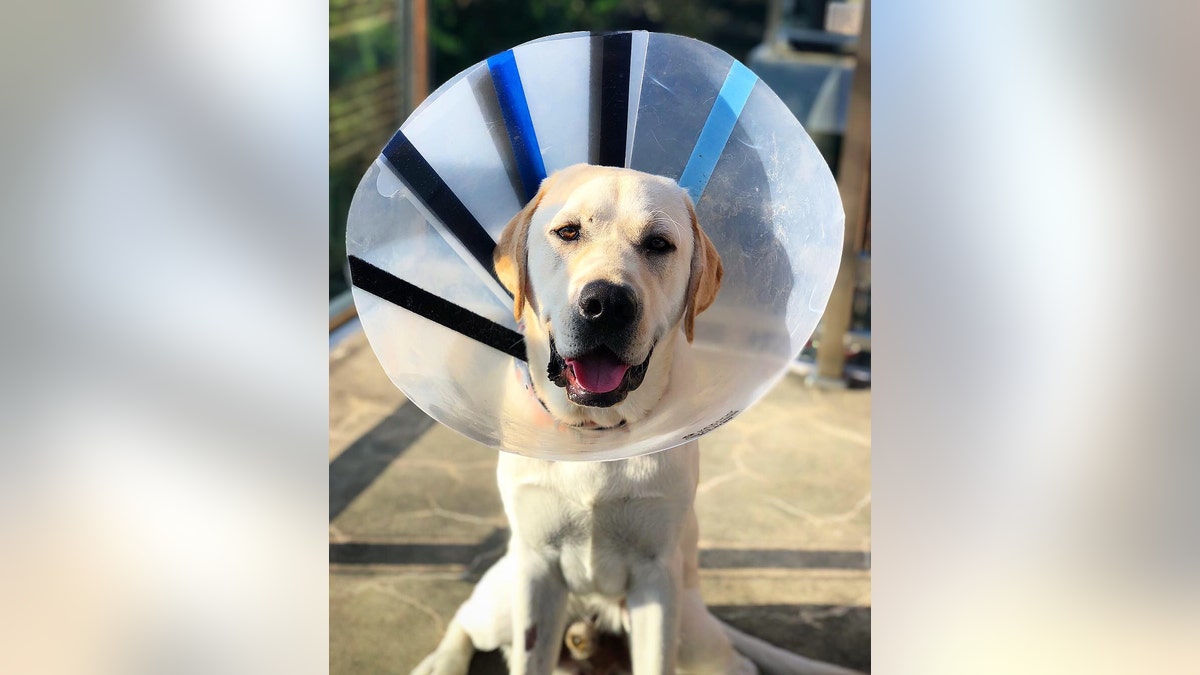
Spike was under the weather this week. (Jennifer Williams)
Spike woke up with the worst cough one week ago. At first, it sounded like he might have had something stuck in his throat. It was a dry cough, and he’s taken to tearing out the stuffing from some of his soft toys so maybe something had been tickling his throat.
As the day went on, he sounded more like a goose, with more forceful coughs, and I knew something was wrong. Of course Googled “my dog is coughing like a goose,” which suggested he might have kennel cough.
I took him to my veterinarian at One Love Animal Hospital.
SERVICE PUPS TAKE THE SPOTLIGHT IN NEW 'DOGUMENTARY'
Spike was also neutered earlier that week (sorry to break the news like this), and the vet said his cough could have simply been caused by an irritation from the trach they put in his throat while he was under. Another possibility was indeed kennel cough, which is a virus caught from other dogs — and one can’t be treated with meds. Or, it might have been an infection which can be treated with antibiotics, so the doctor wanted to first see if Spike got better before unnecessarily starting meds.

Spike was already recovering when his cough began. (Jennifer Williams)
But there was also another possible cause. You know how humans aren't supposed to eat anything before surgery? Same thing for pets. Of course, I didn’t give him anything to eat or drink before the surgery, but he did throw up some chicken after the vet gave him his pre-meds. We figured out that Spike managed to sneak it from the street on the way into the vet. (Sneaky Spike.) Some of this may have gotten into his lungs and started the infection.
And poor guy — the first time he ever has any people food (aside from peanut butter) and it might have caused this lung infection.
GOOD DOGS ARE ALWAYS LEARNING, EVEN ON VACATION
So we monitored him for a few days and kept him from other dogs in case he had a contagious infection. He was fine all weekend. Still had that dry cough, but good energy, an appetite, and he looked bright.
But by Wednesday I knew something was really wrong. Spike wouldn’t get up to go to our morning editorial meeting at work, which he loves for all the belly rubs. He was also feeling warm, so I immediately took him to the vet.
She took Spikes temperature: 105 degrees. Anything above 102.5 is considered a fever in dogs. The vet could also hear the wheezing in his lungs.
She ran all kinds of tests and determined he had pneumonia. We transferred him to a 24/7 animal hospital that has more resources to treat doggy pneumonia, and Spike ended up spending the night. I knew he was in great hands, but it was so hard seeing him so sick. And leaving him was the worst. But because he could be contagious, he needed to be put in isolation, and all of that made me extra sad.
The animal hospital called the next morning to report that Spike's fever was gone, and that he was eating and wagging his tail. All good signs for a puppy with pneumonia. He came home later that day.
In addition to antibiotics, dogs with pneumonia also need a "nebulizer" and "coupage." The former is a device that gets fine mist into his lungs to break up secretions, but pet-owners can try an at-home alternative, which involves running a hot shower, closing the door, and sitting with your dog for 10- to 15-minute intervals. The latter, canine "coupage," is the practice of cupping your hands and firmly patting his sides near his lungs to help loosen up the infection — basically a firm doggy massage. (Luckily, Spike loved it.)
Canine Companions for Independence, the organization I'm raising Spike for, says that so many of these issues are very regional, so check with your vet as soon as you suspect something. There may be a ton of, say, dog flu cases in New York City, but very few occurrences in Georgia.
FOLLOW US ON FACEBOOK FOR MORE FOX LIFESTYLE NEWS
Anyone with a pet knows how frustrating it is that they just can’t just TELL you what’s wrong. But the reality is, there is no one solution. At the end of the day, you know your pets and their daily routines better than anyone else. Trust your instincts, and ask your vet a lot of questions.
Finding a good vet is also key. I really appreciate my vet being cautious and laying out all the options before immediately prescribing expensive tests.
Thankfully, Spike is definitely improving. His cough is much better, and I know he’ll be back to normal very soon.
For more information on Canine Companions for Independence, visit CCI.org.








































